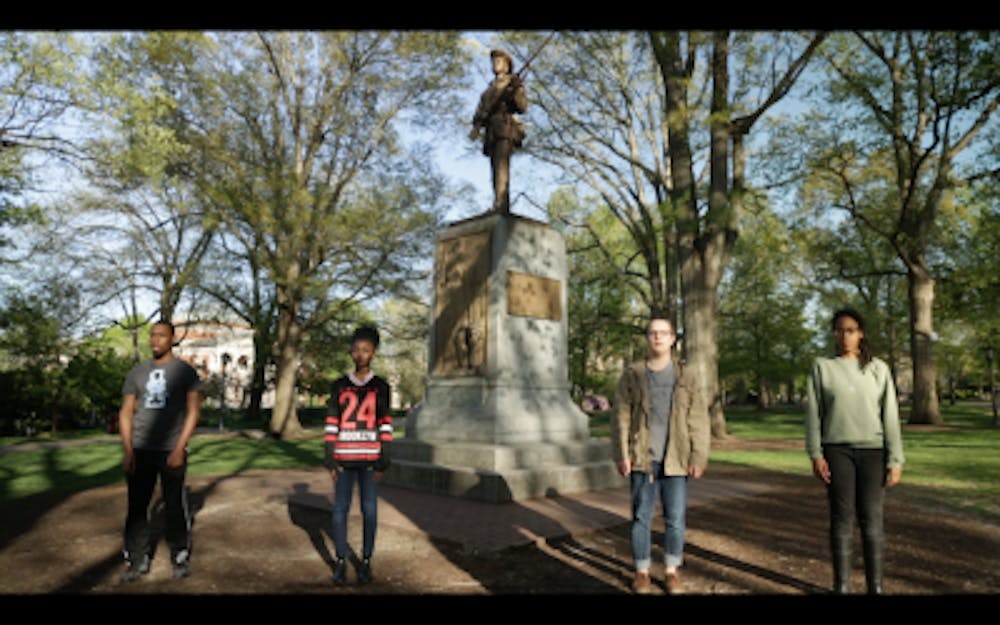Protests, boycotts, overnight sit-ins, a Title IX lawsuit, blood, tears, a statue dismantled and buried in the dirt — these are the controversial events surrounding Silent Sam that will be explored in the student-produced documentary, "Silence Sam."
"Silence Sam," a documentary created in the spring of 2018 by a media and journalism class led by Ligaiya Romero, will be shown Friday from 7 to 9 p.m. at the Full Frame Theater at Duke University.
“This film is important,” Abby Igoe, lead cinematographer, said. “It tells the history of student activism around Silent Sam and gives context to a complex issue.”
Igoe said she enjoyed her experience working alongside inspiring activists in her class. Ligaiya Romero, visiting lecturer last year, offered the idea for this project in his class on multimedia narratives.
Courtney Staton, lead and impact producer, said she and other classmates created the film with the intention of informing the UNC community about the events and repercussions surrounding the Silent Sam statue.
Bringing attention to the racial issues surrounding Silent Sam while also holding the University accountable for supporting students’ sense of safety is important, Staton said.
Though the documentary was made in light of events regarding Silent Sam and the controversial protests surrounding its removal, the issue goes much deeper than the topsoil holding up a Confederate statue.
“Protests have never just been about buildings and statues,” Staton said.
Fighting for the equality of all people is an underlying theme that is connected with the controversy over Silent Sam, and part of this fight is conveying messages through media, Staton said.




